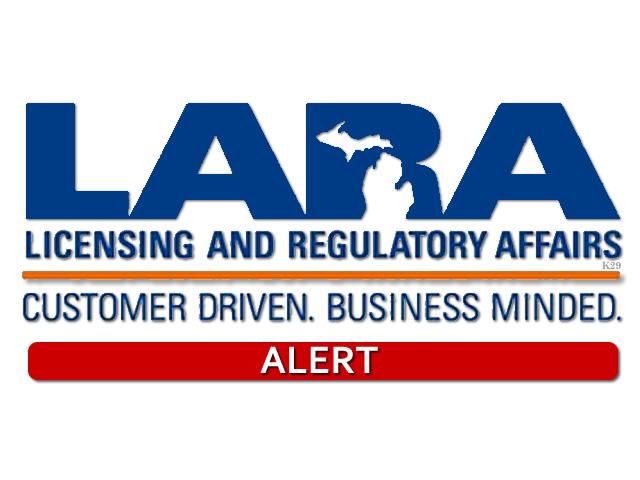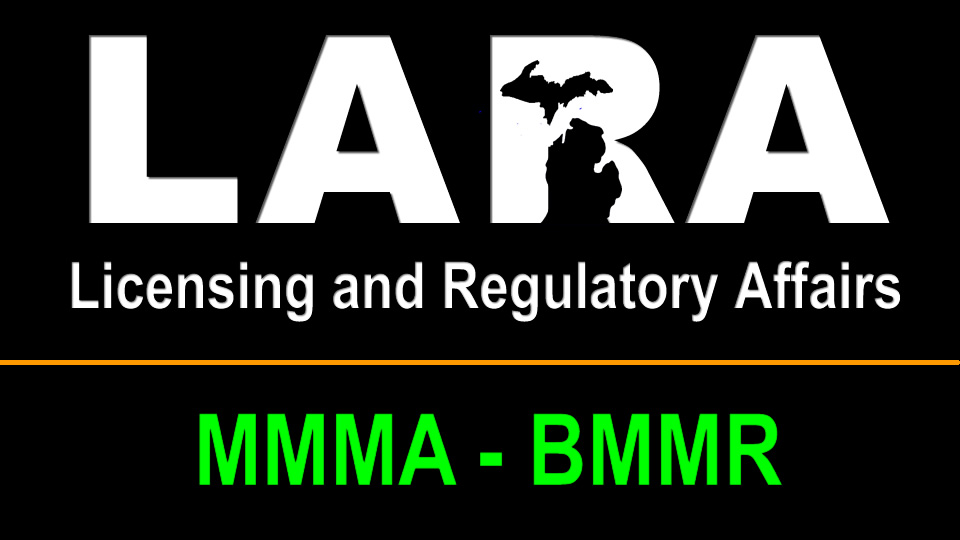
Jul 7, 2018 | Blog, Michigan Medical Marhuana Regulation
PROCESSOR REMINDERS
Originally Posted July 5, 2018
Repost July 7, 2018 (just for you Bob)
Applicants for processor operator licenses should take note of the following reminders via the Emergency Rules and the Medical Marihuana Facilities Licensing Act. This list is not all-inclusive and merely highlights some key areas that should be considered.
A processor of edible marihuana product shall comply with CURRENT GOOD MANUFACTURING PRACTICE IN MANUFACTURING, PACKING, OR HOLDING HUMAN FOOD (located here) to ensure safe preparation – except that refrigerated potentially hazardous marihuana product must be stored at 4.4 degrees Celsius (40 degrees Fahrenheit) or below.
The licensee shall provide employee training on safe food handling by providing either proof of ServSafe certification or documentation of employee training on food handling, including – but not limited to – allergens and proper sanitation and safe food handling techniques.
A processor is prohibited from producing an edible marihuana product that requires time or temperature control for safety. The end-product must be a stable shelf-life edible marihuana product.
A licensee shall comply with at least one of the following:
FDA Food Safety Modernization Act (FSMA)
21 U.S.C. section 2201 et seq.
Safe Quality Food-Code-Ed-7_2-Final-1-2014
International Organization for Standardization (ISO), ISO 22000/ISO/TS 22002-1
Upon licensure, the processor shall also include the following for all edible marihuana products:
- Allergen labeling as specified by federal labeling requirements.
- If any nutritional claim is made, appropriate labeling as specified by federal labeling requirements and these rules.
- A statement printed in at least the equivalent of 11-point font size in a color that provides a clear contrast to the background: “Made in a marihuana facility.”
- A processor’s edible marihuana product must comply with all the following:
- No edible marihuana product can be in a shape, color, package, or labeled in a manner that it would appeal to minors aged 17 years or younger.
- No edible marihuana product can be associated with or have cartoons, caricatures, toys, colors, designs, shapes, labels, or package that would appeal to minors.
- No edible marihuana product can be easily confused with commercially sold candy.
- The use of the word candy or candies on the packaging or labeling is prohibited.
- An edible marihuana product must be in child resistant packages or containers.
- Please follow this link for examples of prohibited packaging items.
Upon licensure, a processor shall prepackage and properly label marihuana-infused products before sale or transfer. At a minimum, a processor shall label any marihuana-infused product it produces or packages with all the following:
- The name and address of the marihuana facility that processes or packages the marihuana infused product.
- The name of the marihuana-infused product.
- The ingredients of the marihuana-infused product, in descending order of predominance by weight.
- The net weight or net volume of the product.
- The THC level on the label along with the tag identification as required under these rules.
See the LARA – PDF Release Here

Jul 7, 2018 | Blog, Michigan Medical Marhuana Regulation
I plan on seeking multiple licenses from LARA, do I have to pay the $6000 application fee for each license?
Applicants will need to pay the $6000 application fee for each separate prequalification submitted to BMMR for review. Applicants will not need to pay the $6000 application fee for each separate step 2 submitted. However, applicants will need to pay the regulatory assessment for each step two, before the license can be issued.
Please see the following illustrative examples below for further clarity:
Example 1—One entity seeking multiple licenses (e.g., a grower and processor license)
Entity needs to complete one prequalification, and pay the $6000 application fee. Entity needs to complete a grower step 2 and a processor step 2. When entity receives notification, entity will need to pay a regulatory assessment for the grower license AND a regulatory assessment for the processor license.
Example 2—Separate entities seeking to co-locate (e.g., a prospective grower, processor, and provisioning center)
Entity A, Entity B, and Entity C plan to co-locate as a grower, processor and provisioning center respectively. Each entity will need to pay an application fee of $6000 and, after BMMR notification, will need to pay a regulatory assessment. So, Entity A will need to pay $6000 with its prequalification; Entity B will need to pay $6000 with its separate prequalification; and Entity C will need to pay $6000 with its separate prequalification. A regulatory assessment will also need to be paid for each the grower, processor, and provisioning center license
https://www.michigan.gov/lara/0,4601,7-154-78089_83746-466868–,00.html
Komorn Law has represented numerous clients through the legal chaos of starting up a business in the Michigan Medical Marihuana Industry.
Contact Us For More Information.
800-656-3557

Jul 6, 2018 | Blog, Michigan Medical Marhuana Regulation
Will the Department allow for licensing stacking?
A potential licensee may apply for and be granted multiple (“stacked”) class C grow licenses— each authorizing the grower to grow up to 1,500 marihuana plants—in a single location, subject to the following conditions:
- A potential licensee that applies for stacked licenses will be subject to an additional application and regulatory assessment for each license.
- Stacked licenses must be issued to the same applicant/licensee.
- A licensee with stacked licenses must comply with all applicable local ordinances and zoning regulations.
- A licensee with stacked licenses must identify and track all information in the statewide monitoring system under the appropriate license.
- A licensee with stacked licenses is not required to operate each license in a separate, distinct working area.
Refer to Emergency Administrative rule 22 for additional information on license stacking.
Komorn Law has represented numerous clients through the legal chaos of starting up a business in the Michigan Medical Marihuana Industry.
Contact Us For More Information.
800-656-3557

Jul 6, 2018 | Blog, Michigan Medical Marhuana Regulation
LARA-Cease and Desist Letters to non compliant Medical Marijuana locations
These locations have been served cease and desist letters for not being in compliance with the Medical Marihuana Facilities Licensing Act and the Administrative Emergency Rules.
According to BMMR records, the businesses at these addresses did not file an application for a state operating license by February 15, 2018, and/or did not provide evidence of municipal authorization, as required.
Businesses that have closed are in compliance with the demand to cease and desist.
Location Lists
Komorn Law has represented numerous clients through the legal chaos of starting up a business in the Michigan Medical Marihuana Industry.
Contact Us For More Information.
800-656-3557

Jul 6, 2018 | Blog, Michigan Medical Marhuana Regulation
Who are the rules being created by?
The Department in consultation with the Board. Section 206 of the Medical Marihuana Facilities Licensing Act (MMFLA), requires the Department, in consultation with the Medical Marihuana Licensing Board, to promulgate rules to implement, administer, and enforce the MMFLA. This section also requires that the rules ensure the safety, security, and integrity of the operation of marihuana facilities, by including specific regulations.
Emergency Administrative rules can be found at http://www.michigan.gov/lara/0,4601,7-154-78089_78090—,00.html.
Komorn Law has represented numerous clients through the legal chaos of starting up a business in the Michigan Medical Marihuana Industry.
Contact Us For More Information.
800-656-3557


